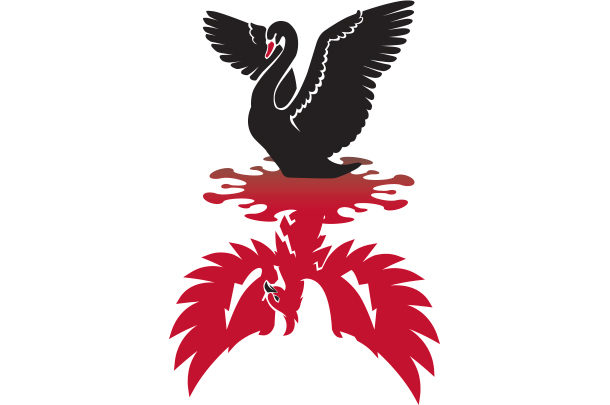The year 2020 has been one for the record books concerning major business disruptors that have caused economic and emotional stress. The COVID-19 pandemic, wildfires, extreme weather, and other global events, are black swans or unusual aspects that are creating an environment that is quite the opposite of “business as usual.”
Coupled with uncertainty surrounding people’s health, the loss of milk markets in some areas, and the normal everyday adverse events such as sick cows, many would like to put 2020 in the rearview mirror!
When adversity strikes, emotional responses follow a typical progession. The first response is often shock. Shock is followed by anger, which will vary in duration, depending on the individual or the situation. The third stage is reassessment or converting the shock and anger to positive energy. It is helpful to think of this process as transforming a black swan or an adverse event into a phoenix rising from the ashes. It is a commitment to move forward with adjustments, innovation, and adaptation with focus on new models for success.
What are some of the action steps that can be followed in this overall process? Four pillars aid in transforming a black swan into a phoenix for the business model of the future.
Resiliency
The first pillar is to develop business resiliency. Given the disruption, this step starts out with basic goal-setting to redefine business, family, and personal goals to achieve a balance for sustainable success. If multiple family members or partners are involved in the business, start individually, determine common ground, and then identify areas of differences for negotiation. Adversity can either draw individuals together or identify differences that need to be accounted for upfront in the whole process.
To accomplish this, a good old-fashioned SWOT analysis, which identifies the strengths, weaknesses, opportunities, and threats, can be a tool for business acumen growth. To maintain objectivity, a facilitator or a team of advisors can be useful when compiling the SWOT analysis.
Thinking through this pillar of business, questions concerning the cost of production, benchmarking to peers, marketing and risk management programs, and your equity and borrowing position, need to be examined and analyzed. Finally, what are you doing to facilitate financial and operational growth in your business IQ for the next generation?
Agility
The next pillar to examine is agility. This pillar requires a focus on working capital and quickness to cash during adverse events or if an opportunity comes along. One must seek a balance between optimization and efficiency versus diversification for agility. Agility requires one to examine markets for competitive products and suppliers for inputs in case of adversity.
Entrepreneurism and innovation
The next pillar is being entrepreneurial and innovative. This is the opportunity aspect of the SWOT analysis. Is your business or industry aligned with the rapidly changing marketplace? What is your people strategy and your overall bench strength? Who are your “draft picks” to take the business to the next level? Do you have the financial systems in place to examine monthly or quarterly performance to sustainably move the business to the next level?
Business IQ
Finally, the decade of the 2020s in agriculture, particularly in the dairy industry, will demonstrate an economic divide. It is not going to be one-size-fits-all in profitability. Analyzing one’s talents, aligning these talents with resources and markets, following the “HUT principle,” and improving one’s business IQ will all be critical. The “HUT principle” is to hear, understand, and take action. A written plan for improvement with key performance indicators (KPIs) in production, finance, operation, and efficiency will be important. In the previous decade, bottom line economic performance was often determined by a manager’s ability to meet production goals. In the decade of the 2020s, business IQ will be the common denominator of successful operations.
Black swan events, either externally or internally to the business, generate accelerated change in business practices and emotional attitudes. Analogous to coaching sports, when adversity strikes, you must regroup, reassess, and develop a game plan that is resilient, agile, innovative, and adaptive through a process of incremental improvement each day.
This article appeared in PRO-DAIRY’s The Manager in November 2020. To learn more about Cornell CALS PRO-DAIRY program, visit PRO-DAIRY Cornell CALS.







